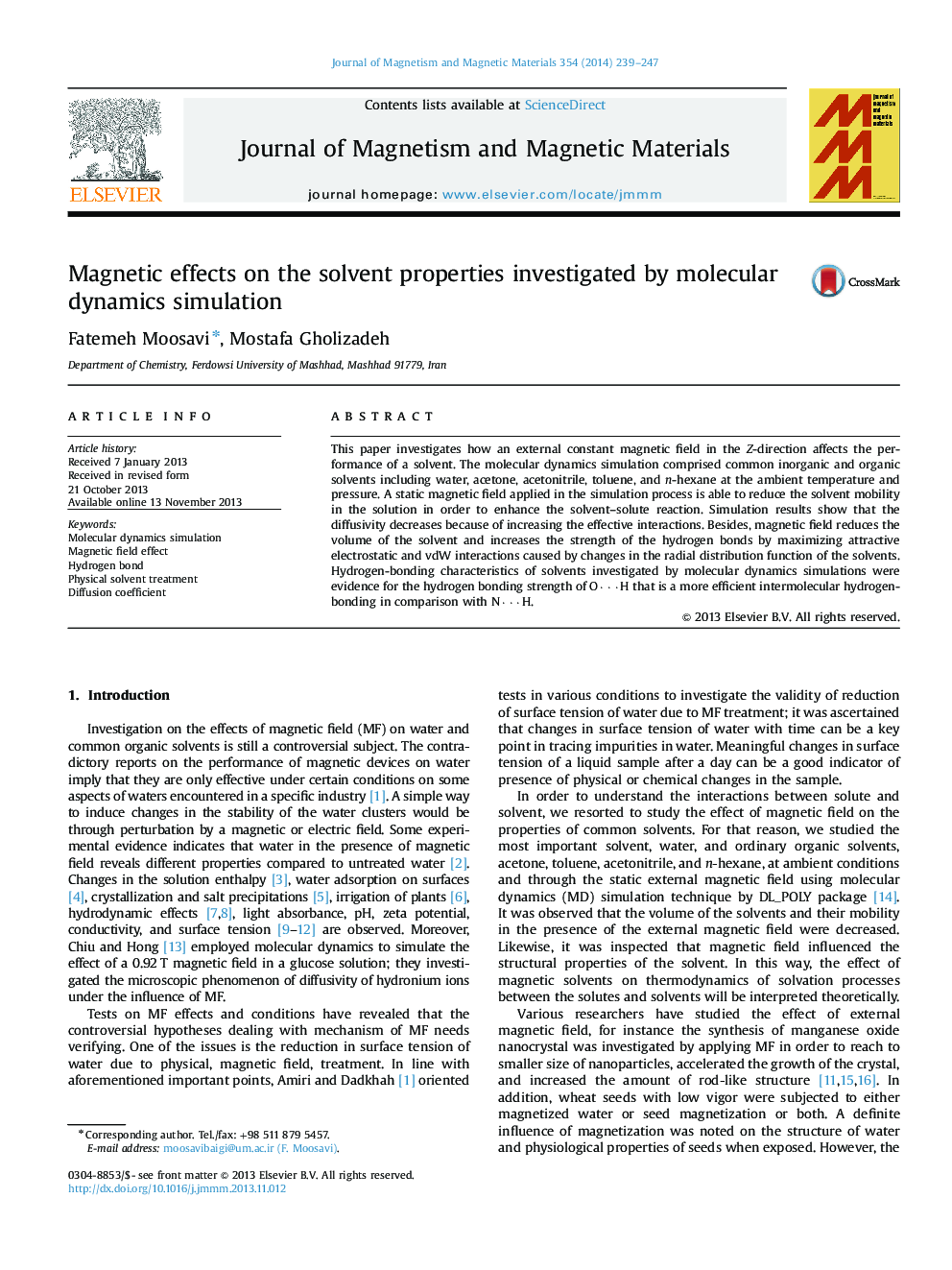| Article ID | Journal | Published Year | Pages | File Type |
|---|---|---|---|---|
| 1799735 | Journal of Magnetism and Magnetic Materials | 2014 | 9 Pages |
•Molecular dynamics simulation technique investigates the effect of magnetic field on transport dynamics inside the solvent bulk.•External constant magnetic field influences on intermolecular interactions, thermophysics, and transport properties of the solvents.•Applying magnetic field strengthened hydrogen bond maximizes attractive electrostatic interactions, charge distribution becomes stronger, and the molecule mobility is demoted.•The low diffusivity of the solvents in the solutions increases the performance of the interactions and promotes the interactions.•On introducing a magnetic field of flux density parallel to the Z-direction, solvent acts as an obstacle to diffusion of solutes.
This paper investigates how an external constant magnetic field in the Z-direction affects the performance of a solvent. The molecular dynamics simulation comprised common inorganic and organic solvents including water, acetone, acetonitrile, toluene, and n-hexane at the ambient temperature and pressure. A static magnetic field applied in the simulation process is able to reduce the solvent mobility in the solution in order to enhance the solvent–solute reaction. Simulation results show that the diffusivity decreases because of increasing the effective interactions. Besides, magnetic field reduces the volume of the solvent and increases the strength of the hydrogen bonds by maximizing attractive electrostatic and vdW interactions caused by changes in the radial distribution function of the solvents. Hydrogen-bonding characteristics of solvents investigated by molecular dynamics simulations were evidence for the hydrogen bonding strength of O···H that is a more efficient intermolecular hydrogen-bonding in comparison with N···H.
